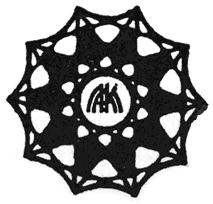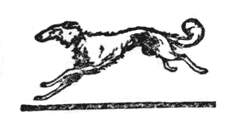Original spelling and grammar has mostly been retained. Manyinconsistencies in the use of hyphens and character accents have beenretained; some of these were intentional. Footnotes weremoved to the ends of chapters. The original pagination of this 1919edition is shown in square brackets, e. g. [Pg009].
Further details are provided in the TRANSCRIBER'S ENDNOTE.
THE
AMERICAN LANGUAGE

THIS BOOK FIFTEEN HUNDRED
COPIES HAVE BEEN PRINTED
AND THE TYPE DISTRIBUTED
THIS IS NUMBER 1434
AMERICAN LANGUAGE
of English in the United States
BY

ALFRED · A · KNOPF
MCMXIX
ALFRED A. KNOPF, Inc.
PREFACE
The aim of this book is best exhibited by describing its origin.I am, and have been since early manhood, an editor of newspapers,magazines and books, and a critic of the last named.These occupations have forced me into a pretty wide familiaritywith current literature, both periodical and within covers, andin particular into a familiarity with the current literature ofEngland and America. It was part of my daily work, for agood many years, to read the principal English newspapers andreviews; it has been part of my work, all the time, to read themore important English novels, essays, poetry and criticism.An American born and bred, I early noted, as everyone else inlike case must note, certain salient differences between the Englishof England and the English of America as practicallyspoken and written—differences in vocabulary, in syntax, in theshades and habits of idiom, and even, coming to the commonspeech, in grammar. And I noted too, of course, partly duringvisits to England but more largely by a somewhat wide andintimate intercourse with English people in the United States,the obvious differences between English and American pronunciationand intonation.
Greatly interested in these differences—some of them so greatthat they led me to seek exchanges of light with Englishmen—Ilooked for some work that would describe and account forthem with a show of completeness, and perhaps depict theprocess of their origin. I soon found that no such work existed,either in England or in America—that the whole literature ofthe subject was astonishingly meagre and unsatisfactory. Therewere several dictionaries of Americanisms, true enough, butonly one of them made any pretension to scientific method, andeven that one was woefully narrow and incomplete. The onemore general treatise, the
